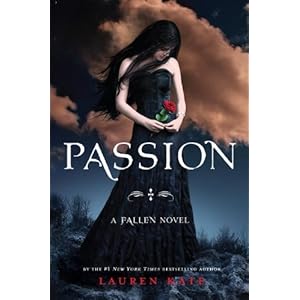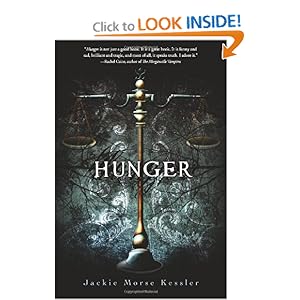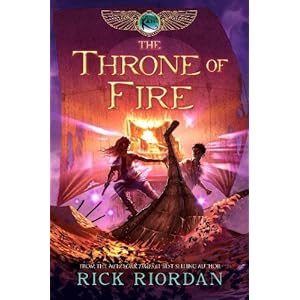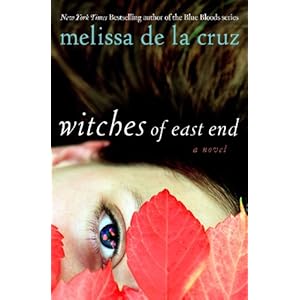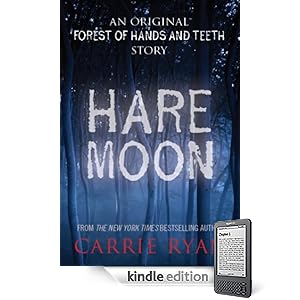
Hare Moon by Carrie Ryan is a small novella that is part of the Forest of Hands and Teeth series. It takes place before the first book, giving fans of the series a little insight into one of the supporting characters, Sister Tabitha. In the previous book, Sister Tabitha was a stern woman who tried to stifle Mary's desire to live outside the small village surrounded by fences and the Unconsecrated (zombies). Now we know why she was so hard on Mary.
Tabitha didn't marry, so she was sent o spend her life with the sisters in Sanctuary, taking over the responsibility of running the village and keeping everyone safe. She doesn't mind because she spends her days dreaming of life outside the fences. She starts slipping out the first gate and wandering into the fenced paths when the daydreams are no longer enough. After a few excursions, she finds a second gate a ways down the path. At the gate, she hears someone call to her and meets Patrick, a man from another village. Tabitha, like the rest of her village, has been brought up believing there were no other villages, so Patrick is a surprise, to say the least.
Patrick and Tabitha meet once a month on the path. Slowly they begin to fall in love. When Patrick doesn't meet her on the designated day, she worries something is wrong. The whole next month she spends exploring the Sanctuary until she finds a hidden tunnel in the basement. It leads her to a room and a book. The book gives her the history of the village, and it shows why the village decided to cut themselves off from the rest of the world- to protect themselves from infect refugees, raiders, and a host of other problems. When Tabitha goes back to meet Patrick, she is surprised when he shows up with his little brother claiming his village fell to the infection. Now she must decide between her true love and protecting the village. Which is more important? Life or living?
This was a really interesting little story that explains so much about Sister Tabitha. It won't make much sense to someone who hasn't read the other stories, as it doesn't spend a lot of time on background knowledge, but it would be good for someone who loved the trilogy. My biggest concern is that it is only available as an ebook. I don't like this trend. I have a Kindle, which I love, but some people I share YA books with don't, and that makes it hard to share this story with them. While I understand the reason so many authors publish electronically these days, I wish authors with previously paper published books would also publish this type of thing with paper and binding. Still, if you have and e-reader, you will enjoy this little tale!


